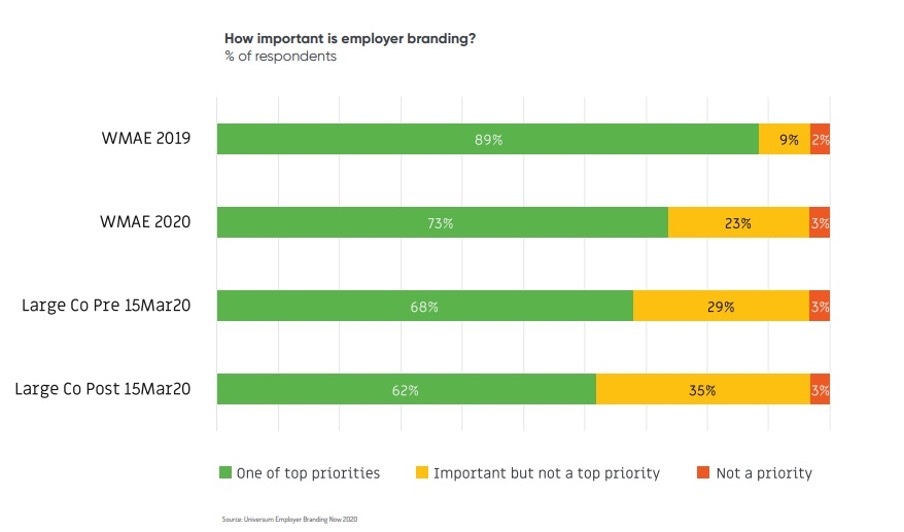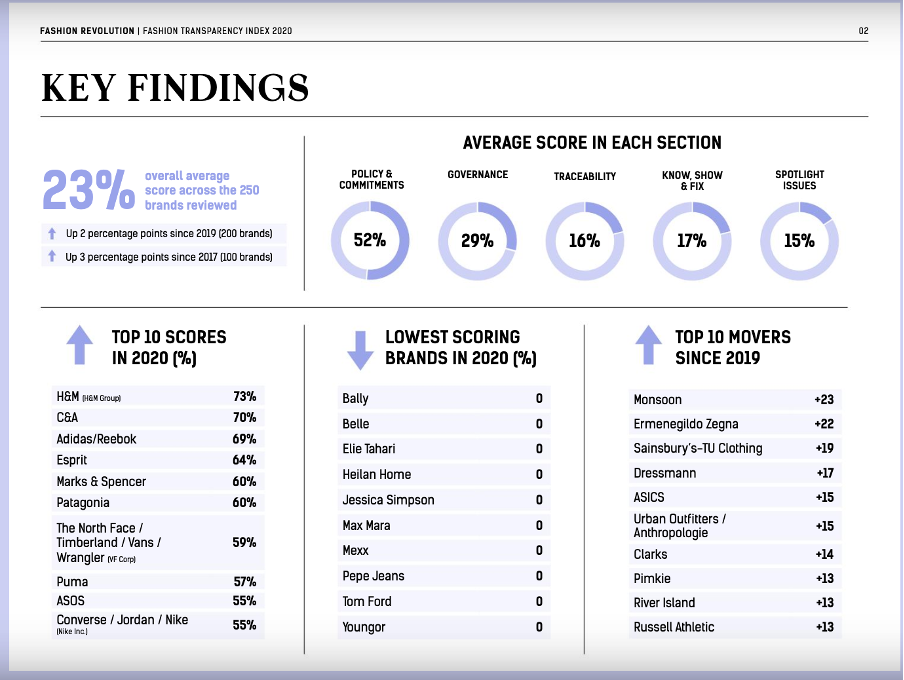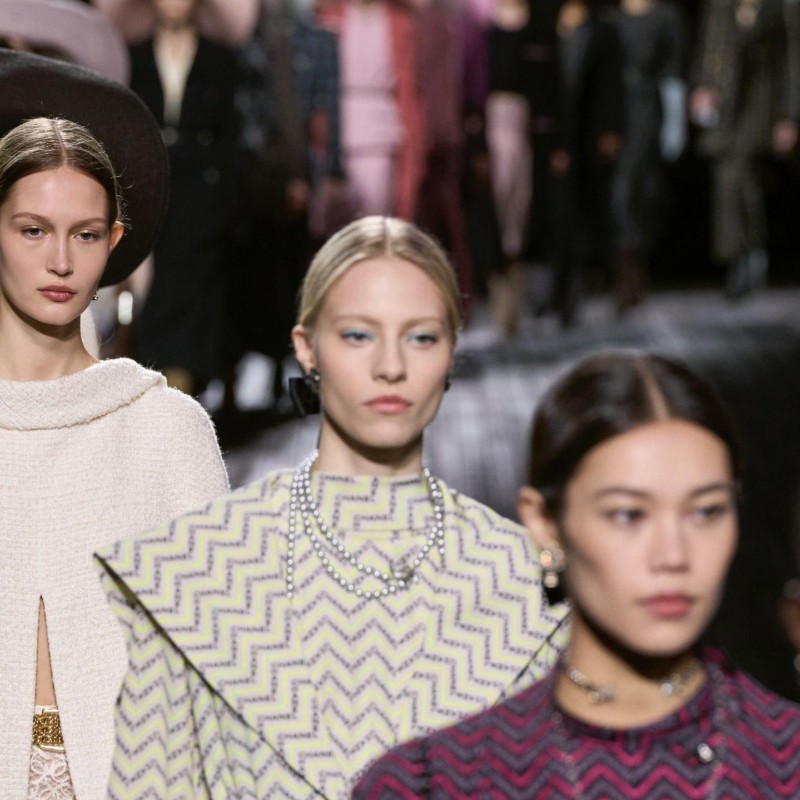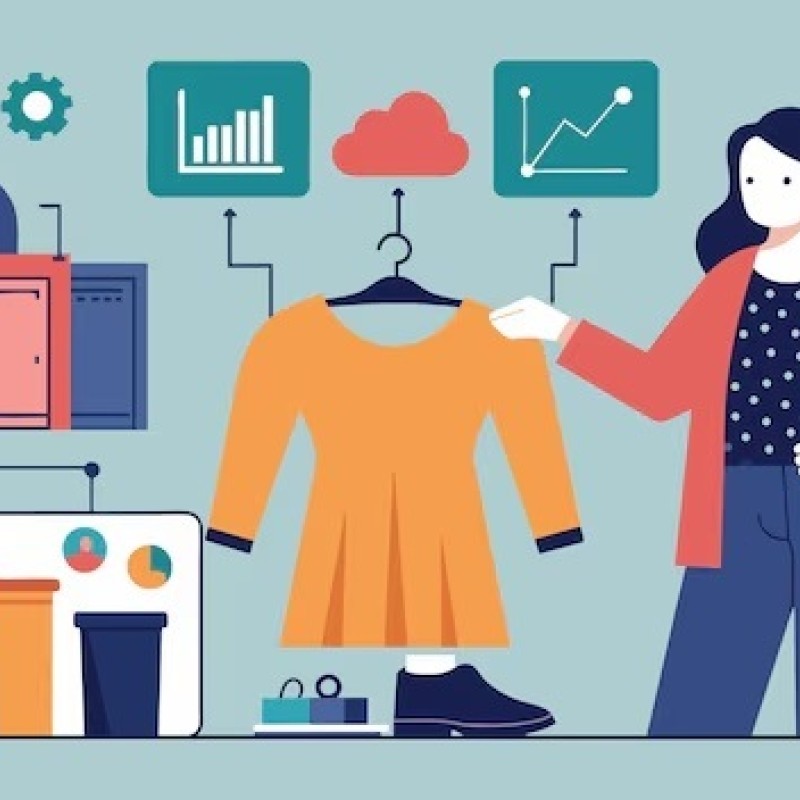Kristian Egelund - Unsplash
However, as the world continues to live with the coronavirus pandemic, companies are reassessing their strategies and goals. The big question is, should employer branding still be a priority within your recruitment strategy, even when your business isn’t heavily recruiting?
This Beyond Talent article explores employer branding and the significance it has within recruitment and talent acquisition. It also showcases what employer branding techniques some of the world’s best fashion brands are using to keep a competitive edge in their industries.
The term ‘employer branding’ is becoming more and more common in the professional fashion world. In a nutshell, it’s a marketing technique used in recruitment to attract, engage and retain talented employees.
A business’ main employer branding goal is to develop a ‘good employer status’ to ensure you become a company people want to work for. This in turn strengthens your business as you stand out against competitors with your clear company culture and values.
When developing employer branding it’s important business’ understand the activity doesn’t sit solely with the Human Resources function. A strong collaboration between CEOs and marketing is required. This concept originally took HR many years to persuade companies to approach employer branding in this way.
We all know the overall aim of recruitment is to find the best talent you possibly can for the role on offer. Employer branding has an impact on recruitment right from the very beginning of your candidate search.
If your company has successfully raised its brand awareness (internally and externally) as a good place to work, you can expect to receive a good number of high-quality candidates applying for just one role.
Patagonia, Gucci, and Adidas are all perceived as great places to work – we also perceive that the people working for them are highly talented. Why? Because, these companies have a developed a solid employer branding strategy that is attracting the right talent for them.
Nike is also a company known worldwide for its accomplished employer brand. It has worked many years on developing its core brand message:
Nike constantly strives to look at the world as if everyone is an athlete. In fact, Nike’s co-founder once said, “If you have a body, you’re an athlete.” What the brand has cleverly instilled in its business are standout values. These values are so specific and identifiable that they’re recognised by millions of people – employees, potential employees, suppliers and consumers – worldwide. This has had an admired impact on Nike’s recruitment and even resulted in many articles in popular publications giving candidates tips on “How to get hired at Nike”.
Since coronavirus has caused a pandemic across the world, job losses have risen rapidly. The fashion industry has particularly taken a hit with redundancy figures north of 21,600. Businesses’ are reassessing budgets and spend to ensure they can survive and ride out the (potentially very long) storm.
Because many companies have put a halt to recruitment, employer branding has become less of a priority. However, recent data from Universum’s Employer Branding NOW 2020 report showcases why the strategy should still be at the top of every companies’ agenda.
The top findings from the report were:
Not only does Universum’s Report show employment trends that are placing even more importance on employer branding, but it seems CEOs are recognising the significance of the activity for recruitment too.
Rewind five years ago (2015), when employer branding didn’t hold much weight, Universum’s research showed the outlook for employer branding was mediocre. Only 31% of CEOs and Marketing Directors said its employer branding objective was to secure long-term hiring needs.
Fast forward to today, and Universum’s Report 2020 shows the magnitude of how employer branding and recruitment have aligned and found itself top of the agenda in many boardrooms (see graph below). Therefore, if you work in Human Resources and are trying to secure your employer branding budget, you’re in a much better place to do so today.

Now we know employer branding will continue to form a significant part of every businesses’ strategy (pandemic or not), it’s time to consider the fashion brands who are doing it well.
Luxury fashion brand Dior has made it onto top lists of best places to work time and time again. The brand is well-known for championing diversity, women in the workplace, and sustainability.
A recent employer branding campaign Dior has been working on is its Woman@Dior mentoring programme. The programme has been live for three years, however in recent months Dior has announced the initiative has also been taken online.
The new online Woman Leadership & Sustainability programme will give 500 students the opportunity to learn from top professors from around the world. The course covers gender equality and women’s leadership for a responsible future. Students’ final assignment will be creating a “Dream for Change” project that supports empowerment, inspiration and equality in young girls.
The programme is not only ‘on message’ for Dior but it shows its employees, potential employees and consumers how committed it is to change. Something very powerful indeed.
Say the word “Patagonia” and you instantly think sustainable, environmentally friendly, a cheerleader for society. The outdoor retailer has its values lived and breathed every single day through its company. But, how does the company do it? It goes out of its way to make Patagonia part of people’s lives – and not just through its clothes.
Patagonia invests in helping its employees understand what ‘sustainability’ really means right from the very beginning. New staff are taken on ‘Enviro Days’ to learn about regenerative agriculture and how it impacts everything they do. They’re then supported continuously with training, education and guidance to ensure the sustainability passion is conveyed (genuinely) in every action. Sustainability doesn’t just stop with production and how the company works, they make a point about helping employees sustain their lives too. The employee-first culture enables them to ‘hit the surf’, bring children into the office, and use their office hours to give back to communities.
Candidates today are more environmentally conscious and aware of the impact businesses’ have on the world. People who want to work for Patagonia are amongst this group and are passionate about sustainability. This is confirmation Patagonia has done its employer brand strategy justice – candidates applying for positions are already half-way-there to living its company’s culture and values.
Gucci is a brand who seem to have always understood the impact of employer branding. Its Gucci Equilibrium initiative to ‘generate positive change for people and our planet’ is something consumers and employees continuously praise the brand for.
The Gucci Changemakers, part of the Equilibrium programme, has been designed to foster social good in diverse communities by supporting areas that will better people’s lives. North America is one location Gucci has been investing in. In fact, it’s invested around £1.5 million to help tackle high incarceration levels, support education and local business development.
The luxury brand also strives for a more diverse fashion industry in the future and its ‘Gucci Changemakes Scholars Award’ hopes to change this. The Award provides a platform for all students, from all areas of the world, to showcase their work with the opportunity to receive £15,000 to make their dream a reality.
This encouragement, investment and foundation Gucci has built to support people is something that makes employees proud to work for the luxury brand. Its engaged culture means employees are happy, motivated and loyal, but most importantly they show encouragement and empathy to everyone around them. A prime example of how employer branding benefits a solid and dedicated workforce.
Another key element major fashion brands are using today to empower their employer branding is, transparency. As consumers and employees become more aware of their shopping habits, they’re demanding more information and clarity regarding the production of the items they buy.
A recent study, conducted by the “Fashion Transparency Index 2020”, shows the ranking of the most transparent fashion companies in the world. It takes into account policies and commitments on human rights and the environment (see image).
The results show high streets brands are currently leading in transparency, with luxury brands not too far behind. However, the interesting finding is the fact that the top transparent brands include most – if not all – retailers on the ‘Best Fashion Brands to Work for’ list.
It appears transparency today not only supports consumer engagement but it supports employee engagement too. We know that the two go hand-in-hand when it comes to employer branding, which is why to succeed in this area ‘transparency’ needs to be a leading priority. In the words of Carry Somes, co-founder of Fashion Revolution:
Gucci is the highest scoring luxury brand (48%), followed by Balenciaga and Saint Laurent (47%) and Bottega Venta (46%).

Fashion Revolution Transparency Index 2020. Link to https://www.fashionrevolution.org/about/transparency/
If you’re in Human Resources then no doubt employer branding has been a focus of yours for many years. However, despite businesses having to shift their priorities to survive a worldwide pandemic, employer branding should still be at the forefront for recruitment strategies. It’s vital existing employees are engaged and supported through these unprecedented times. However, it’s also vital talented candidates seeking their next role are attracted to your business, and not snapped up by competitors before you make your move.
What are your thoughts on employer branding? Have you seen a shift in your employer branding focus since the pandemic?
If you’re looking to recruit for an Employer Branding role, Beyond Talent has over 15,000 ambitious candidates all searching for their next career challenge.
Get in touch today to discover talent for your business beyond your expectations.





Beyond Talent
Fashion Recruitment Agency
Specialising in Senior and Executive recruitment for the luxury fashion, lifestyle and beauty industries worldwide.
Head Office Address
20-22 Wenlock Road, London, N1 7GU
Contact Us